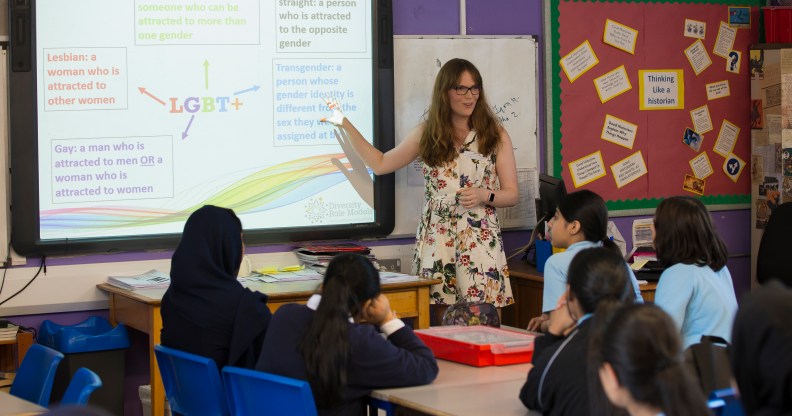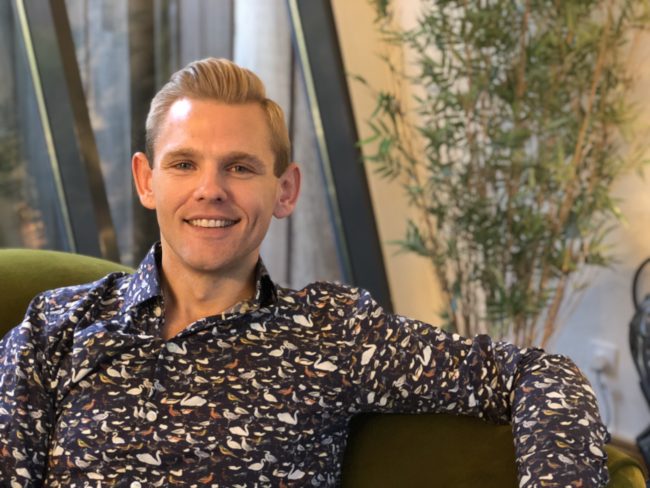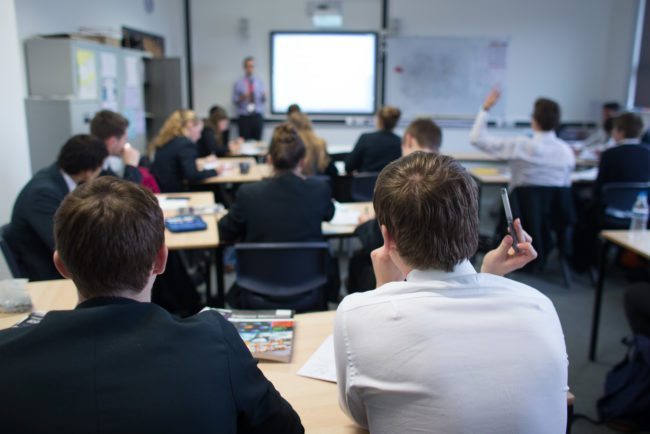The government’s sex ed overhaul must include LGBT relationships—we’ve been excluded for too long

Diversity Role Models is a charity that seeks to prevent homophobic, biphobic and transphobic bullying in UK schools.
Although it was many years ago—and long before I came out—I can still clearly recall being sat in a classroom for a sex education lesson and thinking something was wrong with me.
As a gay teenager, my thoughts, feelings and questions about relationships didn’t align to what was being taught. The curriculum catered solely to straight sex and relationships, completely excluding the experiences of LGBT+ people. No young person should be left feeling the internal conflict that I carried with me for many years.
Last March, the government passed the Children and Social Work Act (2017). One important part of this legislation means that Relationships Education (RE) and Relationships and Sex Education (RSE) will become compulsory in all schools in England. This means that, for the first time in nearly 18 years, we have a vital opportunity to ensure the final guidance for Relationships Education and Relationships and Sex Education is LGBT+ inclusive.
The previous guidance for teachers delivering RSE was last updated when the notorious Section 28, which prohibited the “promotion” of homosexuality, was still in place. Therefore, the government’s commitment to update the regulations and statutory guidance is crucial for creating a truly inclusive education system.
The government has already held one consultation on the new guidance, which closed in February and received an astonishing 23,000 submissions, but the next important deadline is next week.

Adam McCann (pictured), deputy CEO at Diversity Role Models, is calling for sex education to include LGBT+ relationships. (Diversity Role Models)
On November 7, the public consultation on the content of the government’s draft regulations and statutory guidance for RE and RSE closes. This consultation will seek to determine whether this draft guidance provides “sufficient information and support to schools in teaching the subjects.”
And, although the government’s proposed curriculum is significantly better than what is currently in place, it still lacks clarity and focus on educating young people about LGBT+ people, relationships and families.
If a young person is not included, they are excluded. Exclusion can lead to feelings of loneliness, isolation and not having their basic human needs met of developing healthy relationships and feeling connected to others.
As part of Diversity Role Models‘ primary and secondary school workshops, I have first hand experience of standing in front of a classroom as an out gay man, talking to young people about my experience of feeling different.

The government has pledged to make sex education compulsory in all schools in England. (Matt Cardy/Getty Images)
My experience working with Diversity Role Models has taught that it is imperative for all young people to be educated about diversity and inclusion. Diversity is a fact of life and through education young people develop knowledge that dispels negative stereotypes and boosts confidence in understanding difference, enabling them to thrive. At Diversity Role Models, our mission is to create an education system in which every young person will know that they are valued and supported, whoever they are.
So, if you are a young person, parent, teacher, or school governor, make sure your voice is heard. Respond to the public consultation on the draft guidance by November 7. It’s a long form, but Stonewall has provided advice on how to quickly fill out the key questions. Every young person deserves the opportunity to receive an education reflective of our society and reflective them.
Adam McCann is deputy CEO at Diversity Role Models, which works to embed inclusion and empathy in the next generation.

